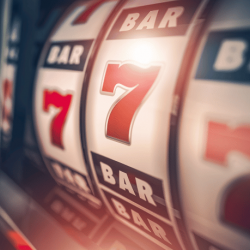Role of Cryptocurrency in Online Gambling in 2024: The Good and the Bad

After crypto entered the scene in 2009, it was only a matter of time before it would infiltrate virtually every industry and market across the globe. A bit over a decade later, it entered the online gambling space, the US sweepstakes space, and even social casinos.
This shouldn’t come as a surprise, given that you can now pay everything short of your taxes using cryptocurrencies, as so many online marketplaces accept at least Bitcoin and Ethereum.
A little over ten years isn’t enough to objectively conclude whether this change is for better or worse. However, the world is seemingly prepared to embrace this “trend” as the new norm, and I’m here to discuss its draws and flaws - the good and bad of crypto being embedded deep into the financial landscape of the online gambling space.
Why is Crypto in so many casinos?
Before listing the obvious and speculated positives and negatives, let’s first touch on why casinos want crypto in the first place.
Firstly, despite its painfully complex nature, crypto is easier to process than, say, an online cheque.
Even though similar technologies are used to read and process information from e-wallets and crypto wallets, the sheer fact that cryptocurrencies exist on decentralized platforms (blockchains) accelerates the process by circumventing a sea of more traditional obstacles.
The second and equally important factor is the sheer popularity of crypto. According to Statista’s research, over 560 million people are owners of at least one cryptocurrency - these numbers don’t even cover your casual crypto-curious individuals and traders-in-the-making who haven’t reported their first incomes yet.
Thirdly, some experts claim that cryptocurrencies are guarded in an impenetrable virtual fortress that is the infamous “blockchain” network. Even though various cryptos exist on different chains, they’re locked behind ultra-advanced protocols and algorithms that are almost impossible to crack.
The Good Side of Crypto in Casinos
One could say that crypto being accepted in more and more casinos is simply a sign of progress.
When brick-and-mortar venues were the only choice, people weren’t ready for credit cards; when online casinos began blossoming, people thought that online banking and credit cards were the only viable options, completely disregarding electronic wallets and apps.
Let’s explore why the addition of cryptocurrencies as a new form of online deposits and cashouts can be good, and who can benefit from them.
(Near) Instant Deposits & Withdrawals
Use whichever VPN and take as much time as you want to take a virtual tour across the globe and visit as many casinos as possible. If there’s a single thread connecting them all, it’s that the shortest timeframe they can process a non-crypto payment is in the span of 12-24 hours.
Crypto made waves in the online gambling industry by reducing the payout time to merely 60-120 minutes, while deposits using these methods are typically processed almost instantly.
If you’re a gambler, you can start sooner and get paid out in a flash. If you’re a casino owner, you get to receive your money and pay your dues faster; this is clearly a win-win combination for both sides.
Universal Availability
There’s a good reason why Interac is an excellent payment system, but you probably didn’t hear about it unless you’re a financial expert or a resident of Canada. Too bad it’s available in a handful of offshore sites, just like many other financial mediums, most notably local-specific credit cards.
That’s all but the issue with cryptocurrencies. They know no borders and exist virtually everywhere at the same time. Not only are crypto payments fast, but everyone can access them as long as they have the right wallet.
Security
As mentioned, all crypto transactions are protected by comprehensive systems that involve multi-factor authentications and a series of approvals, not to mention that no breadcrumbs are left as far as personal information is concerned.
More importantly, the casino itself won’t ever get to learn who you are, which currency you’re using, on which blockchain, or in which capacity - each operation is as stealthy as can be, provided that you have sufficient funds in your wallet.
The “Bad” Side of Crypto in Casinos
Different isn’t necessarily better, just like new isn’t necessarily an “upgrade”. Cryptocurrencies brought a good deal of improvements to the economics of online gambling, but they also carried a few downsides that primarily burden the player. Let’s dive deeper.
Gas fees and (often) hidden costs
Bitcoin transactions are followed by so-called “gas fees”, which are essentially charges named as such because they consume quite a bit of electricity. More specifically, Statista estimates that a single BTC transaction can be likened to over 100,000 credit card transactions.
Players usually end up having to pay for these transactions, and the worst part is that many crypto casinos won’t tell you anything about it in advance.
Is it even legal?
Only a handful of countries have expressly declared crypto legal or illegal. Still, in the largest markets, such as the United States, Canada, China, United Kingdom, and UAE, it’s looming large in the grey zone.
More specifically, parts of the aforementioned territories have legalized or outright banned cryptocurrencies; parts have only decided which operations could potentially be considered illegal while the remaining chunks are yet to voice their legislative opinions.
What does this mean to the player? It simply means that you’re rightfully uncertain whether gambling, paying, and/or receiving cashouts in crypto is legal or not. Most players don’t know whether they’re allowed to do it, and if so, if they are obliged to report crypto winnings to their tax authorities.
The spiral of problems keeps winding down, as more and more jurisdictions struggle to divide the burden of crypto regulations.
Speculations on Crypto in the Future of Online Gambling
Cryptocurrencies have been around long enough that it can be safely said that they’re here to stay. It’s difficult to hazard a guess as to where things will go from here because many crypto owners don’t even know what they own and how cryptocurrencies work, and that’s a major understatement.
More and more cryptocurrencies have launched in recent times; CoinMarketCap estimates that currently, more than 23,000 unique ones exist. Fortunately, we still “know” how to differentiate between major and minor ones.
Given enough time (and marketing efforts), cryptocurrencies may oversaturate the gambling market and even push out the fiat completely. After all, why support methods that take longer and cost more?
What I can conclude is that the current role of crypto in the online gambling world is a supportive one. It’s not as widely available as credit cards, e-wallets, and online banking, and it’s not (currently) endangering mainstream payment systems in a competitive sense.
The general mindset of crypto owners, the “hype” behind the cryptocurrencies that is still seemingly as strong as ever, and the (un)willingness of regulatory bodies to legalize or ban cryptocurrencies in their respective fields will likely be the deciding factors of where crypto will land in the future of gambling.
This article delivers the thoughts and opinions of the author, and it doesn't represent the stance of GoodLuckMate.

























-414x318.png?v=7)


